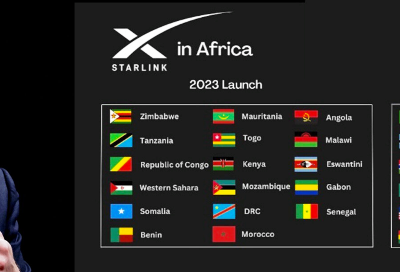By Emmanuel Otori
Organizations that are result oriented are usually obsessed with getting the needed work done within the expected timeframe as they also expect to get value for the efforts in maintaining their staff strength.
There are many metrics used to measure productivity in order to ensure the team always puts the expected concerted efforts with the aim of reaching a target goal, however measuring the team’s productivity has unique advantages such as giving their peak at any given time to assigned tasks and avoiding waste of time on unnecessary tasks.
RELATED
Five Things The Past 20 Years Can Teach Us About Our Future Work Lives
CES 2019 – Targus Unveils ‘Nexgen’ Docking Solutions To Improve Workplace Productivity
Covid-19 Will End But Workplace Culture Will Never Be The Same
There are consequences if an organization fails to track the productivity of its staff as this would lead to complacency and there would not be much room for improvement since the state of individual and corporate productivity are unknown.
Some technological tools to help programme the team and workplace into high performance are explored as follows
- Time Tracking e.g. Timesheets
Different technologies have been developed to keep track of time which can then be used to calculate the total utilization of a particular staff. Although the total number of hours spent does not necessarily imply the greatest productivity. Tools such as the digital log in with fingerprints have helped to make progress, but on the other hand are timesheets which is a website or an app that can be installed on a mobile device. A person can clock in and clock out and as well go on break. It is very helpful because the moment a person logs in, it informs the admin of the particular time a login is made by sending an automated email. Pictures of the staff logging in can also be taken while logging in as not just to track time automatically but the authenticity of the location, clothes worn and facial expressions. Metrics of all logins are then summarized daily, weekly and on a monthly basis.
- To do Lists e.g Trello
Lack of organization on what tasks should be prioritized could lead to randomness in carrying out a job function, however with a to-do list, weekly tasks can easily be scheduled by each individual. The task of every staff member can also be seen by everyone and not just the admin. When a task has been completed, it can be moved to a new tab called “done or completed”.
The overall weekly task can now be broken in daily priorities of what should be achieved. A team member can easily be motivated to work on their task as the progress made by others can be seen.
- Team Collaboration e.g Slack, Bitrix24
While emails are important for work based communication, there have been ethical issues around whether team members should keep their official email active on their mobile devices or not when work is completed for the day. Although most email services have features to support the receipt of official mails on mobile devices, it does not significantly support team collaboration especially on other office activities such as quick reminder, memos, an emergency meeting or informal schedules.
Tools for team collaboration can easily be installed and messages in the form of text, images or documents can be sent directly to a person’s inbox or shared on a general or private channel as created by the admin and other users.
The encryption in the use of these platforms is also necessary in order to keep the confidentiality of every conversation.
- Brainstorming e.g Stormboard
The user experience (UX) in the use of tools to support or replicate a physical experience is a fantastic approach most especially when a team has to brainstorm on a variety of ideas.
Brainstorming has to do with coming up with new ideas by different team members and making a vote on which should be accepted on note. Brainstorming tools make this happen by supporting the expressing of every individual’s opinion which can be seen by all and making a vote on which of the ideas to accept or implement.
- Calendars e.g Google Calendar, Calendly
One way to keep track of what the future holds is to record every single thing. Executives are usually involved in a plethora of activities and although the brain can keep millions of information, it is best to always have the good old diary for keeping important meetings. Online diaries in the form of calendars can now help professionals become productivity as they can get reminders of upcoming meetings or events without having to forget what matters
There are many tools to help maximize productivity and I hope the ones reviewed here would help add value to respective job roles.
Author: Emmanuel Otori has worked on the GEM Project of the World Bank Bank; conducted training for entrepreneurs and professionals at the Abuja Enterprise Agency and has over 8 years of experience of working with over 50 SMEs across Nigeria.
IMAGE: How to Improve Workplace Productivity Easily – WiseStep































